In Olympic year, the European Championships decathlon in Rome brings the decathletes of Europe together in a reprise of the great battles of the last five years.
More lies ahead, for many, in Paris. But in Rome the European endgame begins.
In the words of the defending European champion, Niklas Kaul:
“Every event in decathlon writes its own story, and at the end everything comes together.”
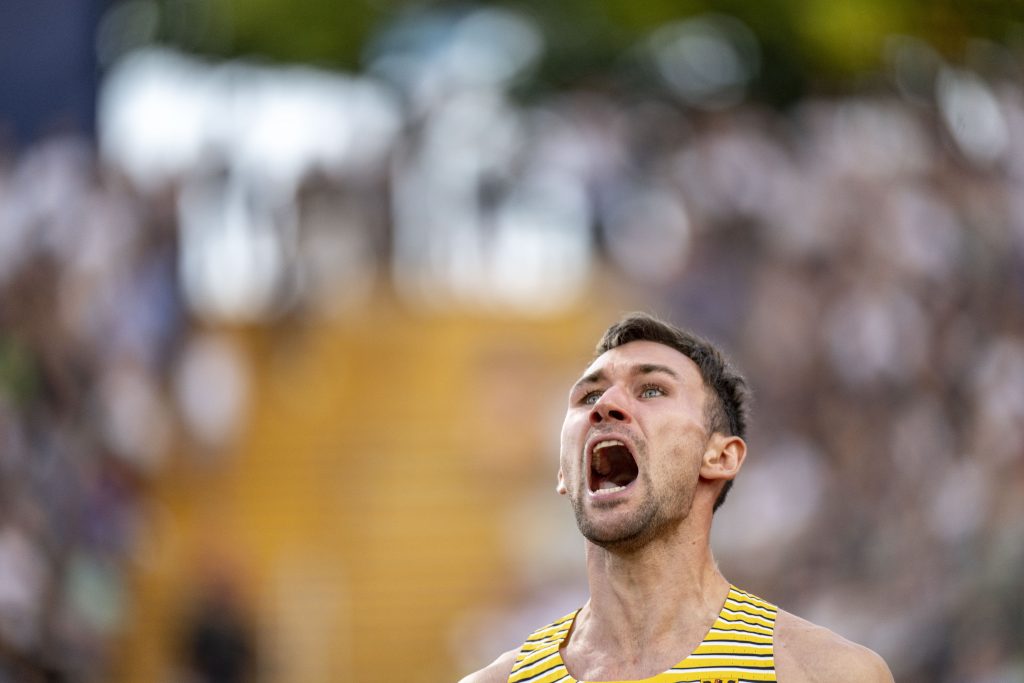
THE BATTLE OF MUNICH
“If this decathlon were a game of chess, Ehammer had played an inspired set of moves to force his opponent into a corner. But Kaul’s final two manoeuvres were those of a grandmaster. Check in the javelin, checkmate in the 1500.”
Two years ago, Niklas Kaul of Germany and Simon Ehammer of Switzerland fought in an electric atmosphere in another Olympic stadium, this time in Munich. The classic competition between the day one decathlete (Ehammer), and the day two decathlete (Kaul). As the competition reached completion of the eighth event, the pole vault, the gap between Ehammer in first and Kaul in seventh had grown to 520 points.
For Kaul to win in front of his home crowd, he needed 72m in the javelin and 4:13 in the 1500m. Prior to the competition he had not had a single throw over 70m that year, and his 1500m PB was exactly 4:13, set while chasing Ayden Owens-Delerme a few weeks previously at the World Championships in Eugene.
Kaul delivered, and more. He threw 76m, and ran 4:10 to score 8545, to Ehammer’s 8468.
The landscape of European decathlon has changed since that evening in Munich with another German, Leo Neugebauer, closing in on 9000 points and considerably more athletes capable of 8500-8600. But this competition is special to Kaul. He comes to the start line with the defending champion wildcard, and this will be his first decathlon of the year. The few individual events he has contested so far this year have yielded a 14.17s hurdles PB and, more significantly, a 75.42m javelin.
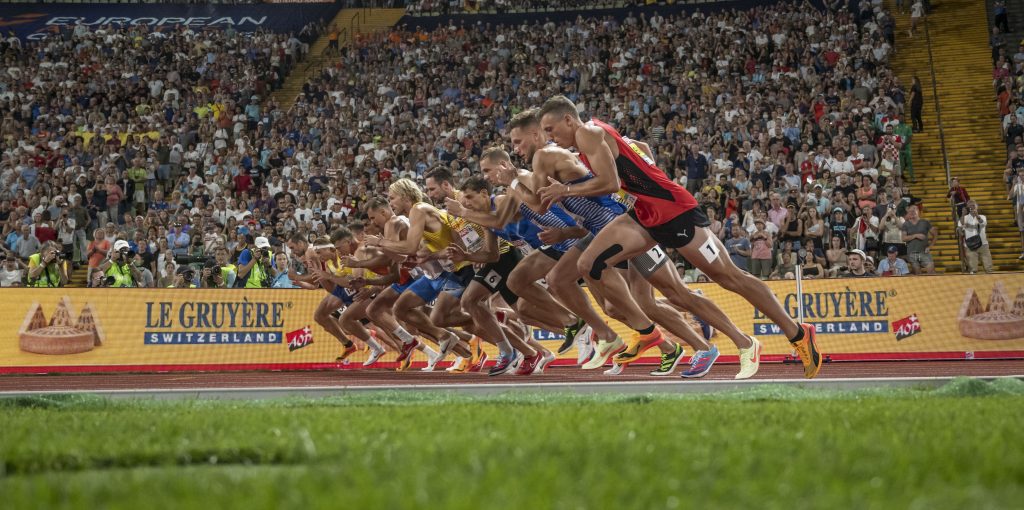
THE BATTLE OF GÄVLE
Kaul’s competition will not come from Germany’s southern neighbour Switzerland on this occasion. The proximity of the championships to Götzis meant that Ehammer focused on the long jump instead, winning bronze on Saturday evening. Instead, the competition will come from the North.
The Estonians are enjoying a golden period of decathlon at present, even without their 2019 world silver medallist Maicel Uibo.
Janek Õiglane was the third man on the podium in Munich, holding off a fast-finishing Marcus Nilsson who came within 20 points of him.
“When I saw on the scoreboard that I got third, some tears came to my eye,” he said at the time. Õiglane, in his own words, likes to do things the hard way and his fight is one played out constantly on the precipice between injury and success.
Year after year Õiglane comes back from months out of action, and when he can finish, he finishes in style. In 2023, we saw one of his greatest efforts yet in Budapest, adding over 100 points to his previous PB to score 8524 and finish sixth in the World Championships. Thus far in 2024 Õiglane participated in a few events during the Mt SAC Relays competition, and Rome will be his first full decathlon.
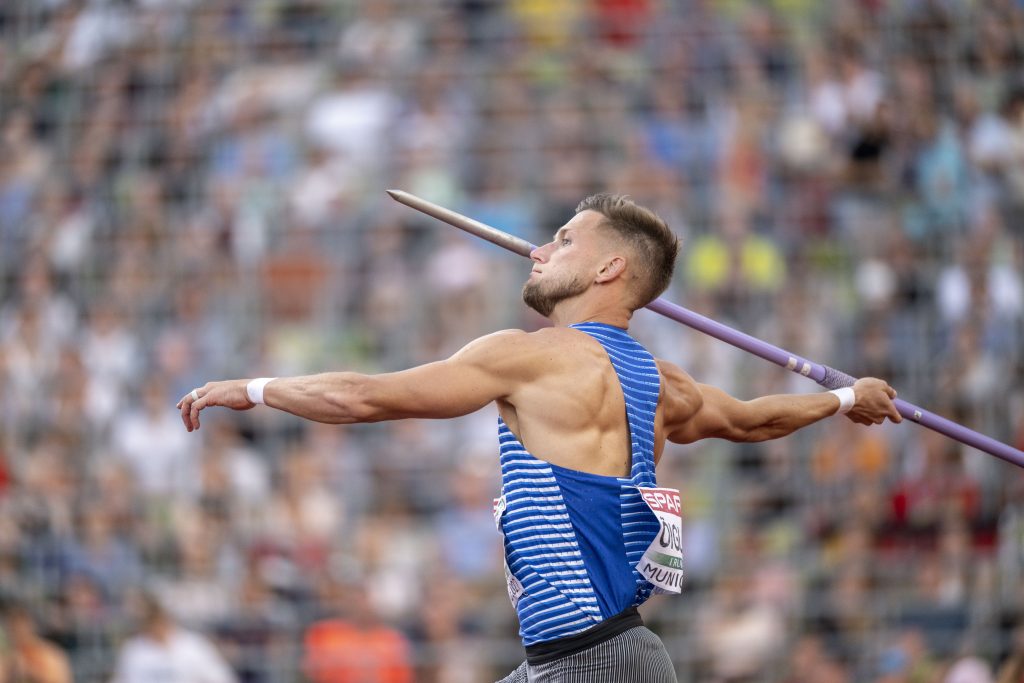
But Kaul’s biggest challenge from an Estonian came in 2019, at the European U23 championship in Gävle. Long before Ehammer did the same in Munich, Johannes Erm brought his day one skills to lead out the decathlon field.
At the time I wrote “Erm’s sprints and long jump would be good, Kaul’s javelin and 1500m would be good. The margins in the other events would be what influenced the results.”
The margins came from Kaul maxing out his weaker events on the first day. And Erm fought hard, throwing javelin best after javelin best, in a way that would have been a serious blow against anyone other than Kaul.
Erm ended the competition in Gävle with the silver medal and 8445 points. His best remains around that level – he improved it to an Olympic qualifying mark of 8484 in Budapest last year where he finished ninth and scored 8462 to finish third in Götzis last month.
Erm is also the World Indoor Championships bronze medallist behind Ehammer and Norway’s Sander Skotheim, and was in the mix for the title until the end. Erm is capable of something well beyond 8500 points, and we might expect him to be close to, if not leading outright, on Day 1.

With the current top Estonian Karel Tilga skipping the European championships, the third Estonian in the field is the 2023 European Indoor bronze medallist Risto Lillemets, who finished behind Kevin Mayer of France and Sander Skotheim in Istanbul. Lillemets competed in Götzis this year, scoring just under 8000 points. His best is 8156.
THE BATTLE OF ESPOO (AND GROSSETO)
Remaining in the North, the gold and silver medallists from the European U23s last year in Espoo have been locked in decathlon battle over the last few seasons. The exploits of “Rootheim” could push each other to the gold and silver medals.
Sander Skotheim has enjoyed international medal success indoors, second to Ehammer at the World Indoors this year and to Mayer at the European Indoors in 2023.
Skotheim’s outstanding combination of jumps – at best 7.83m long jump, 2.20m high jump, 5.35m pole vault – lend themselves well to the indoor arena, along with his speed over all distances. But his throws have developed too, and he scored a discus PB of 46.92m earlier this month. All of that together takes him to a decathlon PB of 8590.
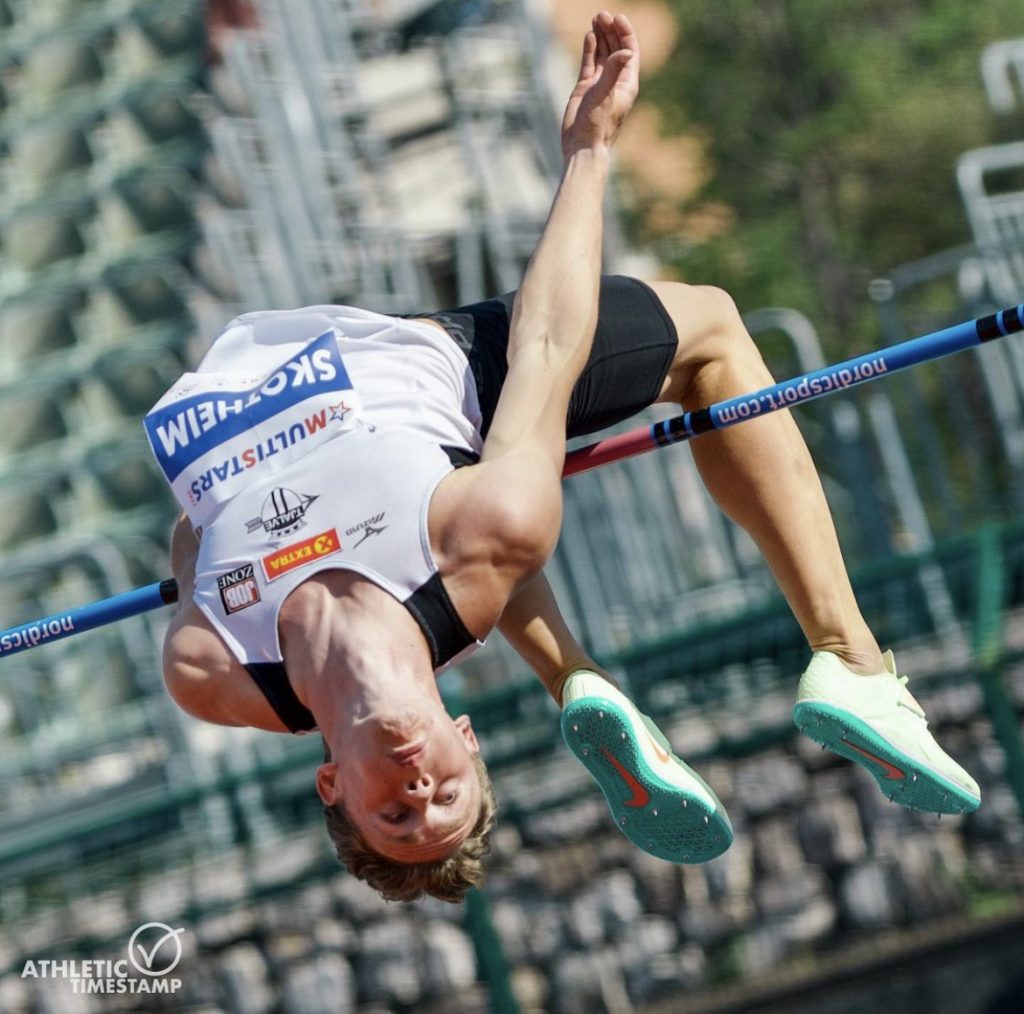
The last two years have been pivotal years for Skotheim, graduating from U20 competition with Jente Hauttekeete of Belgium to lively duels with his teammate Markus Rooth.
The 2022 edition of Multistars was the first play of that competition, as both men crashed through Martin Roe’s then Norwegian record of 8228, Skotheim scoring 8298 in second to Rooth’s 8307 in first, just nine points apart. Part two came in Espoo, where they tussled to new heights, Skotheim again in second place with 8561 and Rooth first in 8608.
Markus Rooth is one of the most underappreciated, and overlooked, of elite decathletes.
He does not have the showy star events of some of his rivals – the impressive long jump of Erm, the sky-high vertical jumps of Skotheim, the javelin of Kaul.
But, rather like Õiglane and, to an extent, Kevin Mayer he is efficiently competent across all ten events.
Rooth’s strongest events lean towards his throws: 15.52m shot, 49.13m discus and 66.12m javelin. That in itself is impressive, for Rooth is also amongst the smaller of the decathlon contingent. He initially struggled to make the transition from U20 to senior implements, but those days are now long gone.
If you look closely enough, Rooth has always been around. Bronze on the 2019 EU20 podium in Boras behind Simon Ehammer. Bronze on the 2021 EU23 podium in Tallinn behind Andreas Bechmann and Sven Roosen (who, with his new 8500 PB, is skipping Rome). And then gold in Espoo last year, with two 8500+ scores in two months.
I don’t do predictions but, if I did, a senior European title for Rooth would be at the top of my list.

THE FRENCH CONTENDER
Away from the shambles of the French selection debacle, Makenson Gletty and Teo Bastien qualified for the European championships. And while the French spotlight may be elsewhere, make no mistake, at his best Makenson Gletty is a contender for a medal.
Gletty’s best is 8443, from Talence last September when his competitors assembled to pace him towards the Olympic qualification standard, which he just missed. His standout event is his shot, close to 17m in Glasgow earlier this year to the delight of the crowd, but improvement across the board has brought him up towards Olympic standard. He should be able to keep pace with Kaul, Erm, Õiglane, Skotheim and Rooth.
This is Teo Bastien’s first major championships, and he has a bronze medal from the European U20 championships in 2021 behind Hauttekeete and Skotheim. Bastien has been peppering the margins of 8000: 7976 in May 2023, 7963 in April 2024, 7906 in May 2024. His individual marks are all good or improving, with the exception of the 1500m where he is still aboard the struggle bus with a best of 4:49.

THE BATTLE FOR THE GERMAN TEAM
The Germans have their own battle in play, in positioning for championship teams. The choices for Rome were somewhat easier, with Kaul using his champion wildcard, and Neugebauer and Till Steinforth in the midst of NCAA activities.
Felix Wolter, himself a graduate of the NCAA, enjoys his first occasion in a senior vest at a major championships, in addition to his debut in Götzis this year, thanks to a consistent set of 8100+ performances over the last few years. His best is 8299.
Tim Nowak has had a super year so far, revising his six-year-old decathlon PB from 8229 to 8282 in Götzis this year, and breaking 6000 points for the first time indoors in January.
Manuel Eitel takes the fourth German spot. He was a bystander to the Kaul-Erm epic in Gävle, where he took bronze, but arrived in 8300+ territory last year in Götzis, with a PB of 8351. It’s been a quiet year thus far for Eitel with just some individual events outdoors, so he comes to the champs with a clean slate.
FORZA AZZURRI
Italy had not had an 8000-point decathlete for almost 20 years, until Dario Dester scored 8109 at Multistars in 2022, where he was third behind Rooth and Skotheim. He went on to have a good European championships in Munich, finishing sixth and extending his own national record to 8218.
Now they have two, as Lorenzo Naidon scored 8090 in 2023.
As was the case for Sveva Gerevini in the heptathlon, Dester and Naidon will have the entire Italian crowd behind them and Gimbo providing captain’s encouragement.
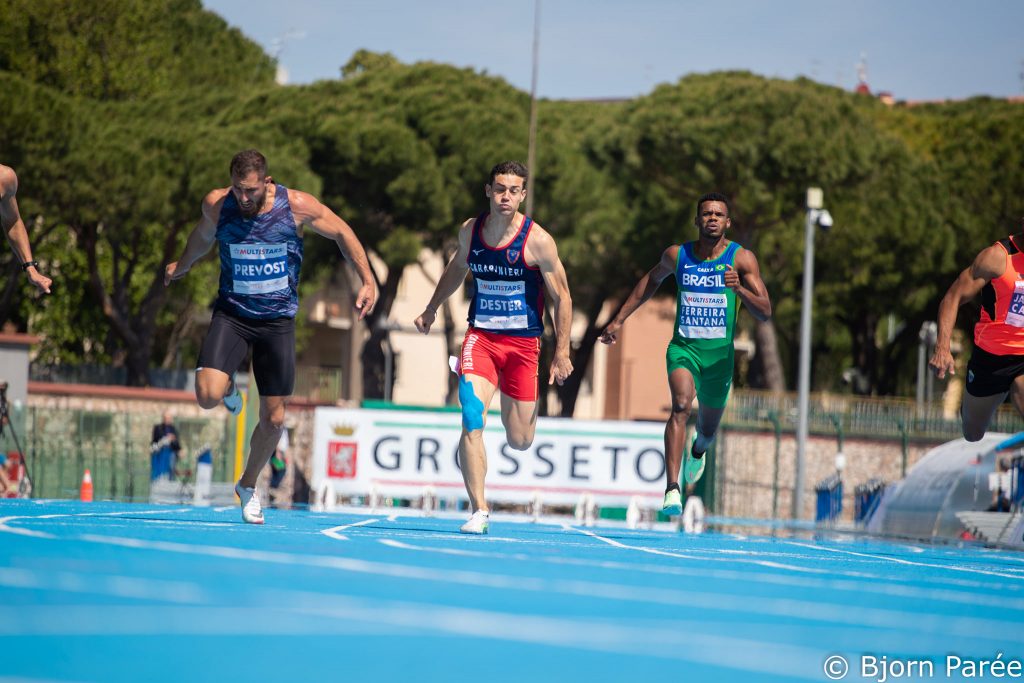
THE RECRUITS
And now to those who have improved significantly of late, climbing the rankings and onto the platforms which – as for those before them – will elevate them to bigger scores.
Edgaras Benkunskas of Lithuania and Jeff Tesselaar of the Netherlands are the latest recruits to the 8000-point club. Benkunskas scored 8098 in his debut in Götzis this year, and Tesselaar scored 8035 when he finished second behind Malik Diakite of Germany in Arona.
Just behind them, Angelos-Tzanis Andreoglou of Greece landed 7926 to win the Balkan championships in Türkiye recently, a significant improvement to his previous best of 7676 before this year. Twenty-year-old Zsombor Galpal scored 7975 to win the Hungarian championships, in only his third senior decathlon.
There’s a Greek national record waiting for Andreoglou, currently 8069 from 2000. Galpal is also close to joining the five Hungarian men – headed by coach Attila Zsivoczky – who have cleared 8000.
Finley Gaio of Switzerland, Jente Hauttekeete of Belgium, and Vilem Strasky of Czechia are not quite rookies, but this is each of their first times at a major outdoor championships in decathlon.
Gaio competed in Munich in the hurdles, where he finished fifth, while Hauttekeete and Strasky competed in the world indoors in Glasgow earlier this year.
All three have hit 8000 within the last year – Gaio and Hauttekeete in 2023, and Strasky this year – and all three did so in Götzis. All three are also capable of getting much closer to 8400 and above.
THE GENERALS
As a complement to those experiencing their first major championships, there is a cluster of revered generals who have been here many times before.
Thomas van der Plaetsen of Belgium, who won this title back in 2016, leads that group and is focused on what needs to be done to make the Olympics later this season. His outstanding year in 2021, when he set his PB of 8430, was cruelly cut short by an injury in the long jump in Tokyo.
Adam Sebastian Helcelet of Czechia won the silver medal in 2016 behind van der Plaetsen and is – it seems – indestructible. He won the Czech champs earlier this year in 7850 but has knocked out an 8000-point decathlon pretty much every year since 2012.
Darko Pešić of Montenegro holds multiple national records: heptathlon, 60m hurdles and 1000m indoors, and hurdles and long jump outdoors. Most importantly, he improved his own decathlon record to 7862 just last year, and how has less than 150 points to go to finally reach 8000. Watch out if you’re seated anywhere near his coach Goran Obradovic, especially if he makes to grab a chair.
And Pawel Wiesiołek of Poland, who in 2021 was relentless in pursuing decathlon after decathlon to qualify for the Tokyo Olympics, five in six weeks. He succeeded at the final attempt in June 2021, setting his PB of 8333 in doing so.

ENDGAME
Finally, Kevin Mayer of France, who is approaching Wiesiołek levels of perseverance, and contemplating his own endgame.
Time is running out for Mayer to qualify for his home Olympics in Paris in August. Time has, I fear, already run out for the possibility that he can both qualify and bring the 9000-point decathlon that will almost certainly be needed to reach the podium.
Mayer has been granted a wildcard at the request of the French federation and added as the 25th man.
Mayer has never won this title, although he finished second to Andrei Krauchanka in 2014 in Zurich, but a medal is not the primary aim here.
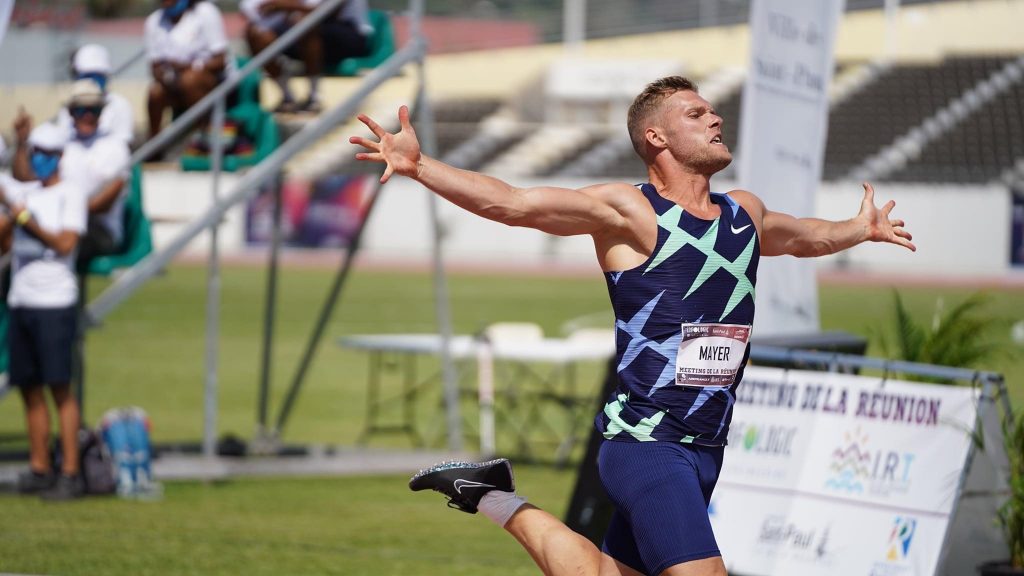
We will all, of course, be willing Mayer on to ensure that he takes his place in the Olympic decathlon field.
But let’s be sure to remember that – despite the headlines on which others will focus – there are 24 other decathletes of Europe engaged in a battle to be European champion.
Gabby Pieraccini, June 2024


